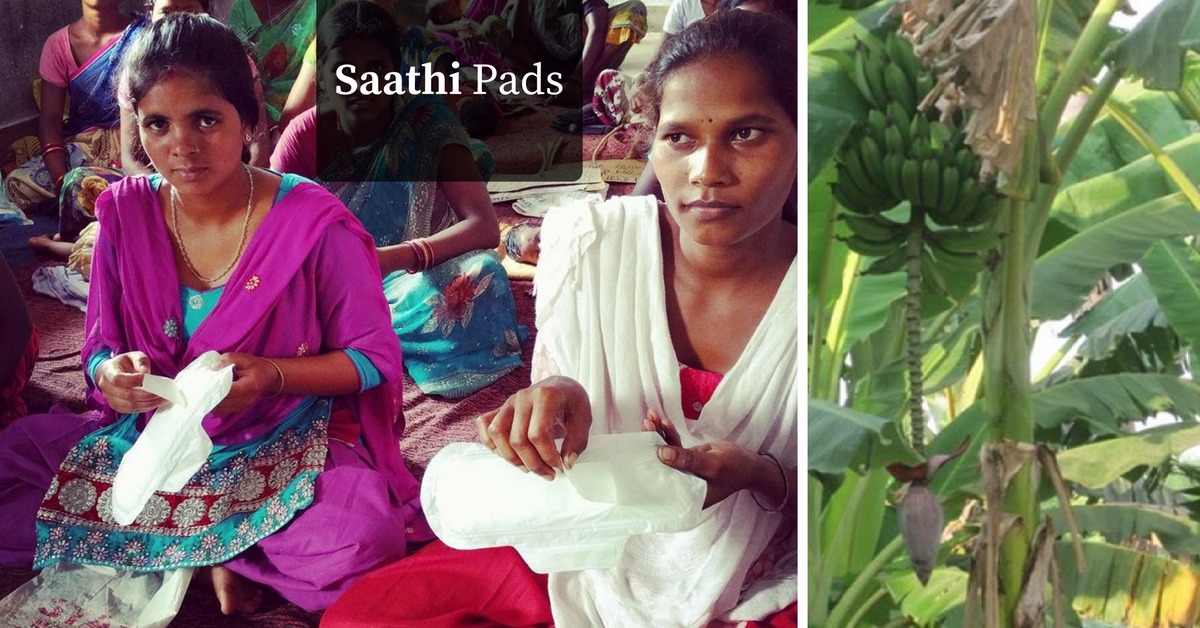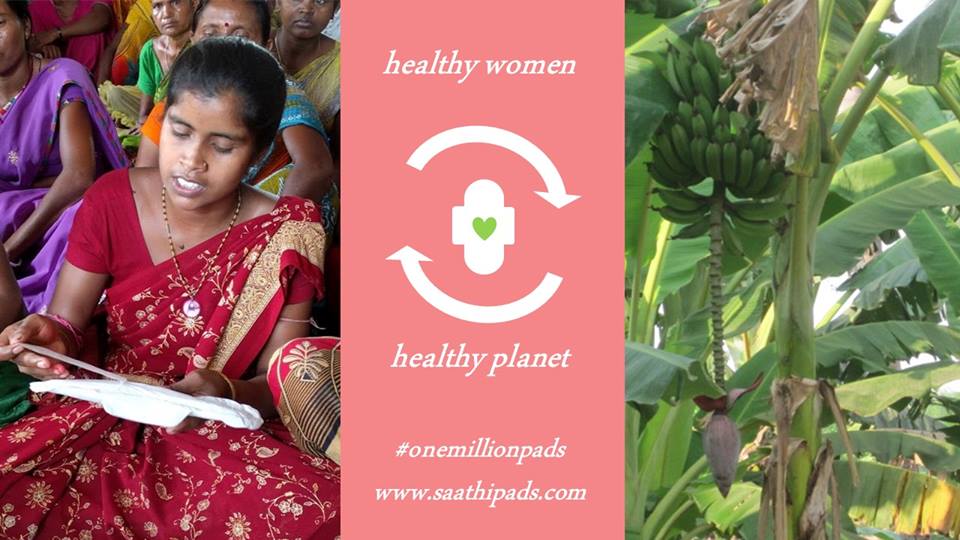How Eco-Friendly Pads Made from Banana Waste Fibre Could Revolutionize Menstrual Hygiene in India
In a bid to counter the exorbitant price of sanitary napkins and make sanitary waste more eco-friendly, three MIT graduates have founded Saathi.

In a bid to make sanitary waste more eco-friendly, three MIT graduates have founded Saathi pads, which are made from waste banana tree fibre. The initiative started out with one question, “Do we really have to choose between women’s health and the health of the environment?”
Kristin Kagestu, Amrita Saigal and Grace Kane were classmates at MIT who were passionate about both development and engineering.
They decided to put their technical knowledge to use by running a social enterprise that would empower rural women who do not have access to sanitary napkins.

Picture Source
In 2012, Amrita began working on creating a sustainable solution to sanitary waste disposal during her stint with Procter & Gamble. She got together with Kristin who first visited India when she was working on developing all-natural crayons. Amrita, who also has an MBA from Harvard, was awarded the grand prize in the ‘Social Enterprise’ category in an event organised by the university for its alumni — the Saathi team received $50,000 as prize money.
The banana fibre, which is conventionally considered a waste product for the farmers, is sourced from the banana plantation belt near Ahmedabad. Since Saathi requires this to make their products, the waste product has now become an additional source of income for the farmers.
Saathi is launching their product with a #onemillionpads initiative in Jharkhand. They propose to distribute 1,000,000 pads to rural women in partnership with educational NGO Ekal Vidyalaya. The campaign encourages women to maintain hygienic practices during menstruation. Starting in 2017, Saathi intends to sell their biodegradable sanitary pads nationwide.
A survey conducted in 2011 claims that only 12% of India’s women use sanitary napkins. The napkins are manufactured using expensive machinery, hence they are unaffordable for many women. The women thus resort to using cheaper material such as cloth or husk, which can have serious repercussions on their reproductive health.
Cultural stigma also prevents women from accessing more hygienic alternatives. To counter this, Saathi has organized five workshops in Ahmedabad over the past year. The community building workshops are a space for the Saathi team to introduce their product and discuss safe as well as sustainable menstruation practices with concerned citizens.
To know more or place a pre-order, do visit their website.
The Saathi team is also run a campaign, so they can upgrade to full-scale operations and take care of their supply chain logistics. Donate here.
Like this story? Or have something to share? Write to us: [email protected], or connect with us on Facebook and Twitter (@thebetterindia).
If you found our stories insightful, informative, or even just enjoyable, we invite you to consider making a voluntary payment to support the work we do at The Better India. Your contribution helps us continue producing quality content that educates, inspires, and drives positive change.
Choose one of the payment options below for your contribution-
By paying for the stories you value, you directly contribute to sustaining our efforts focused on making a difference in the world. Together, let’s ensure that impactful stories continue to be told and shared, enriching lives and communities alike.
Thank you for your support. Here are some frequently asked questions you might find helpful to know why you are contributing?


This story made me
-
97
-
121
-
89
-
167











